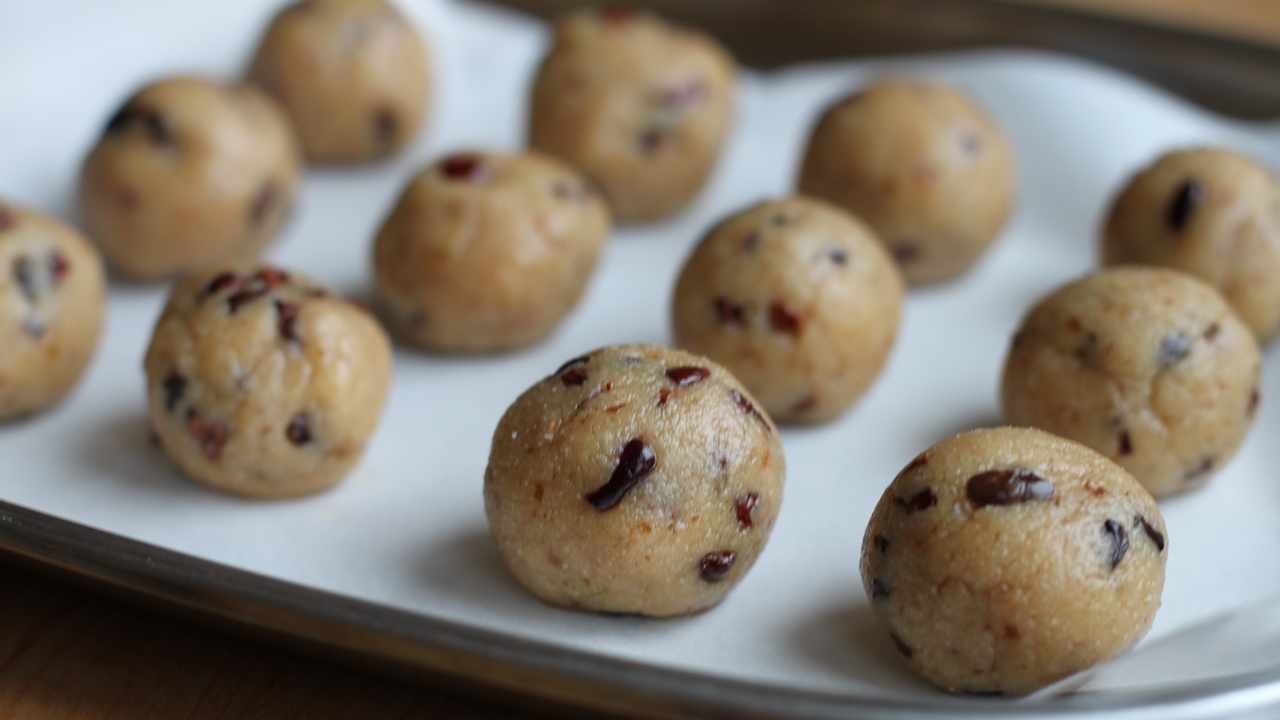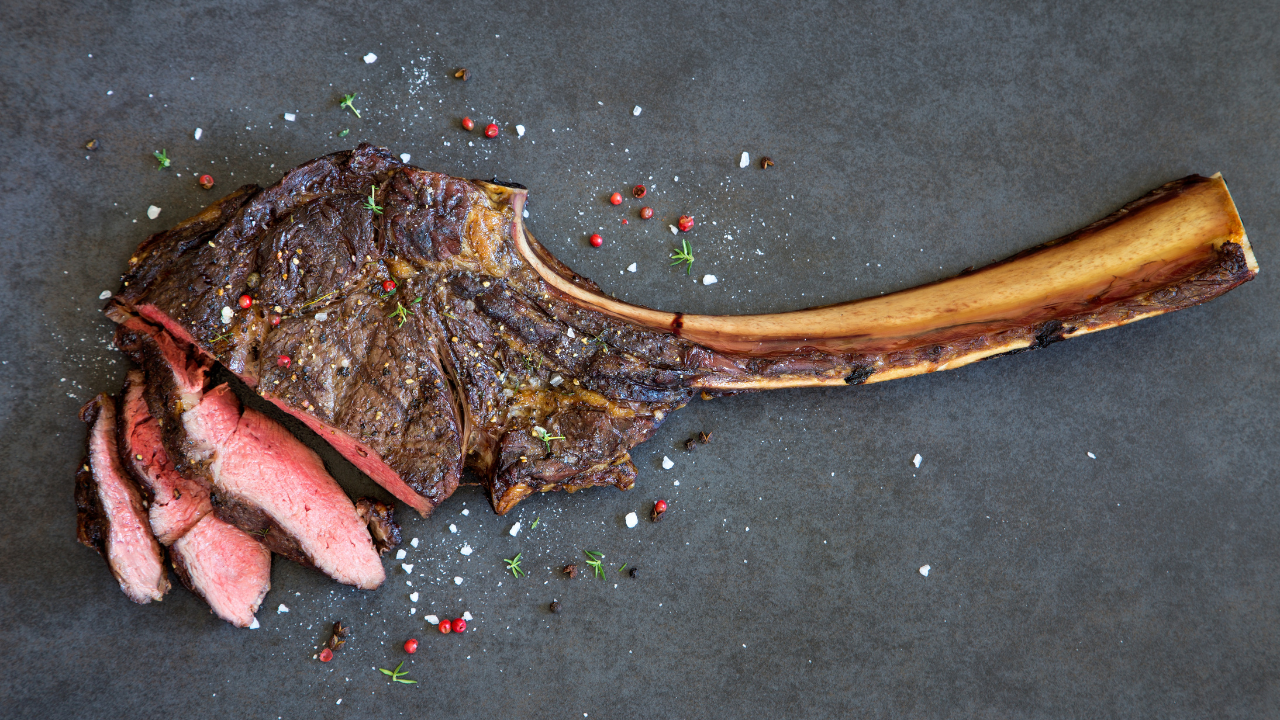AIP Cranberry Cocktail Meatballs
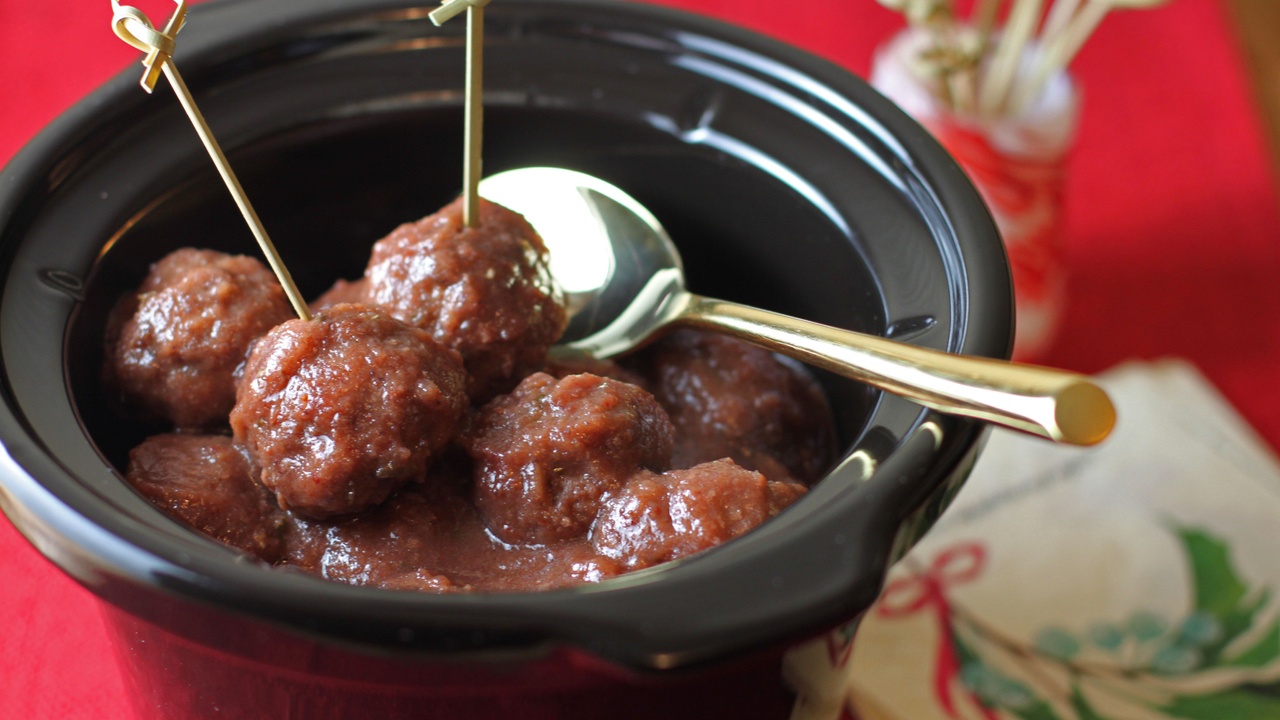
These AIP Cranberry Cocktail Meatballs are a remake of those classic sweet and sour cocktail meatballs. Traditional recipes use processed ingredients like chili sauce, jellied cranberry sauce, barbecue sauce, ketchup, or grape jelly, none of which are allowed on strict AIP. This version uses ingredients like whole cranberries, fresh rosemary, and orange zest to create a sumptuous sweet and sour meatball that your party guests, your family, and even your kiddos will love (as long as they're omnivores).
When it comes to strategizing your success on the Autoimmune Protocol (AIP) diet, one way to navigate gatherings is to bring something along that you know you can eat! This recipe is perfect for that.
Full disclosure: Some of the links in this post may be affiliate links. As an Amazon Associate, I earn from qualifying purchases. Purchasing a product using one of these links will support my work at no additional cost to you. Please know that I only recommend products I wholeheartedly stand by.
Making a Tender Meatball without Breadcrumbs, Egg, or Milk
If you've ever made traditional meatballs, the recipe likely called for breadcrumbs, egg, milk, or all of the above. This mixture is called a panade and serves an important purpose. Panade keeps things like meatloaf and meatballs soft and tender, without falling apart. Meatballs and meatloaf can be made without panade, but the result is often tough and dry, or crumbly.
I've tried several alternatives and the best I've found by far is one of my favorite AIP culinary secrets: good old cassava flour!
This starchy root vegetable grinds down to a superfine flour which does a great job of binding things together without adding a gritty or grainy texture. In these meatballs, they provide added tenderness and bounce that makes them toothsome as opposed to tough.
In this recipe, we combine a bit of cassava flour with broth or water to form a paste, along with all the other seasonings. This pasty mixture is then blended by hand into the meat mixture. While it's best not to overmix your meatballs, our cassava "panade" will help protect from that overworked texture, so go ahead and work it in so that everything is evenly distributed throughout.
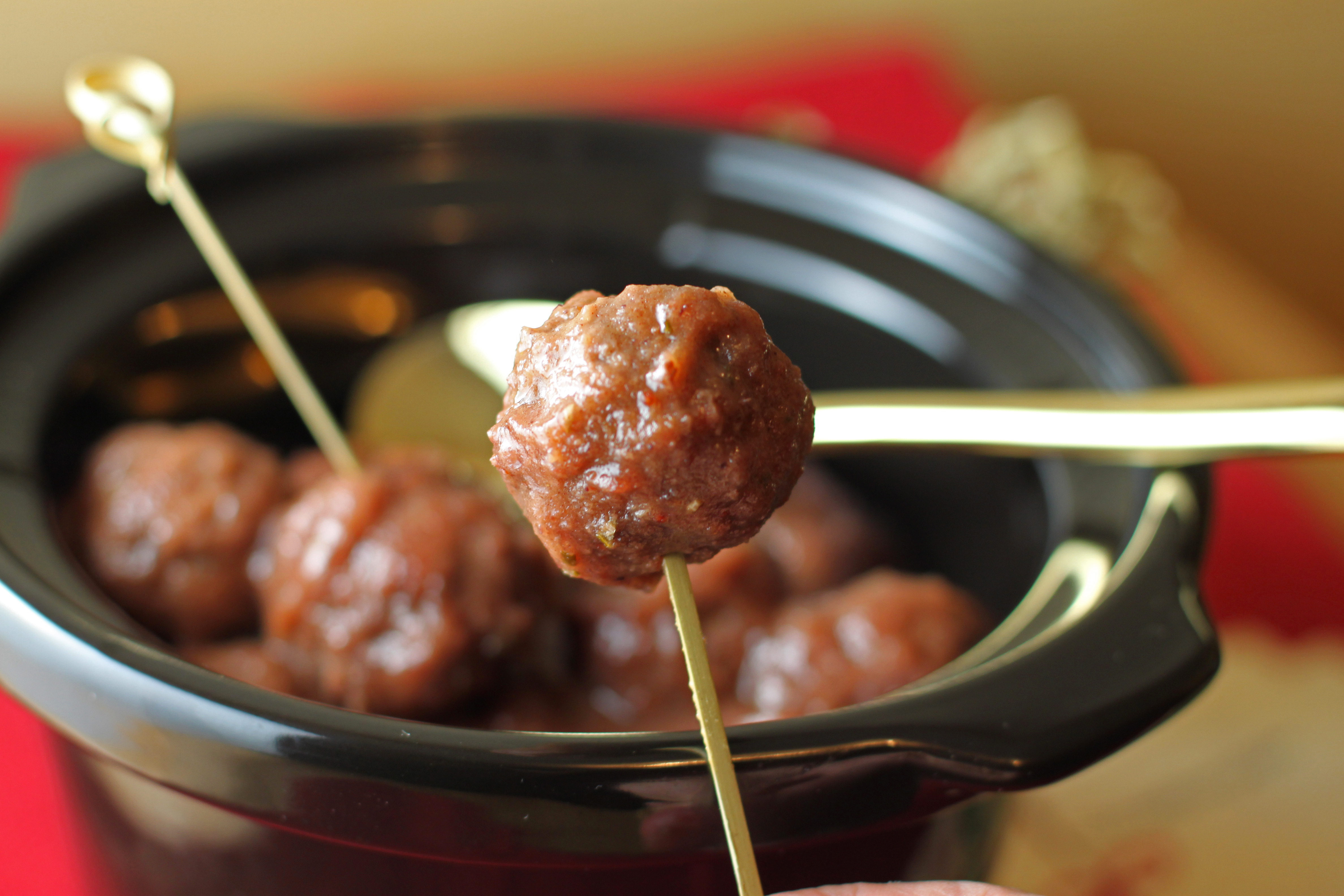
Chef's Notes:
- Enjoy these meatballs on cocktail picks straight from the stovetop or crockpot. They're perfect for holiday appetizers, a potluck contribution, or Super Bowl parties.
- An added convenience is that the flavors only improve when made a day or two in advance and refrigerated until ready to serve.
- If you've made these in advance and would like to serve them from a small crockpot, be sure to first reheat them on the stovetop. Otherwise, they take too long to reheat in the crockpot which could compromise food safety.
- This makes a big batch of about 4 dozen meatballs.
- These freeze beautifully and may be frozen for up to 2 months.
- Make a meal out of these saucy meatballs by serving over a base of cauliflower rice, cauliflower mash, or sauteed cabbage. Those cruciferous vegetables make a wonderful complement to the sweet and sour flavors.
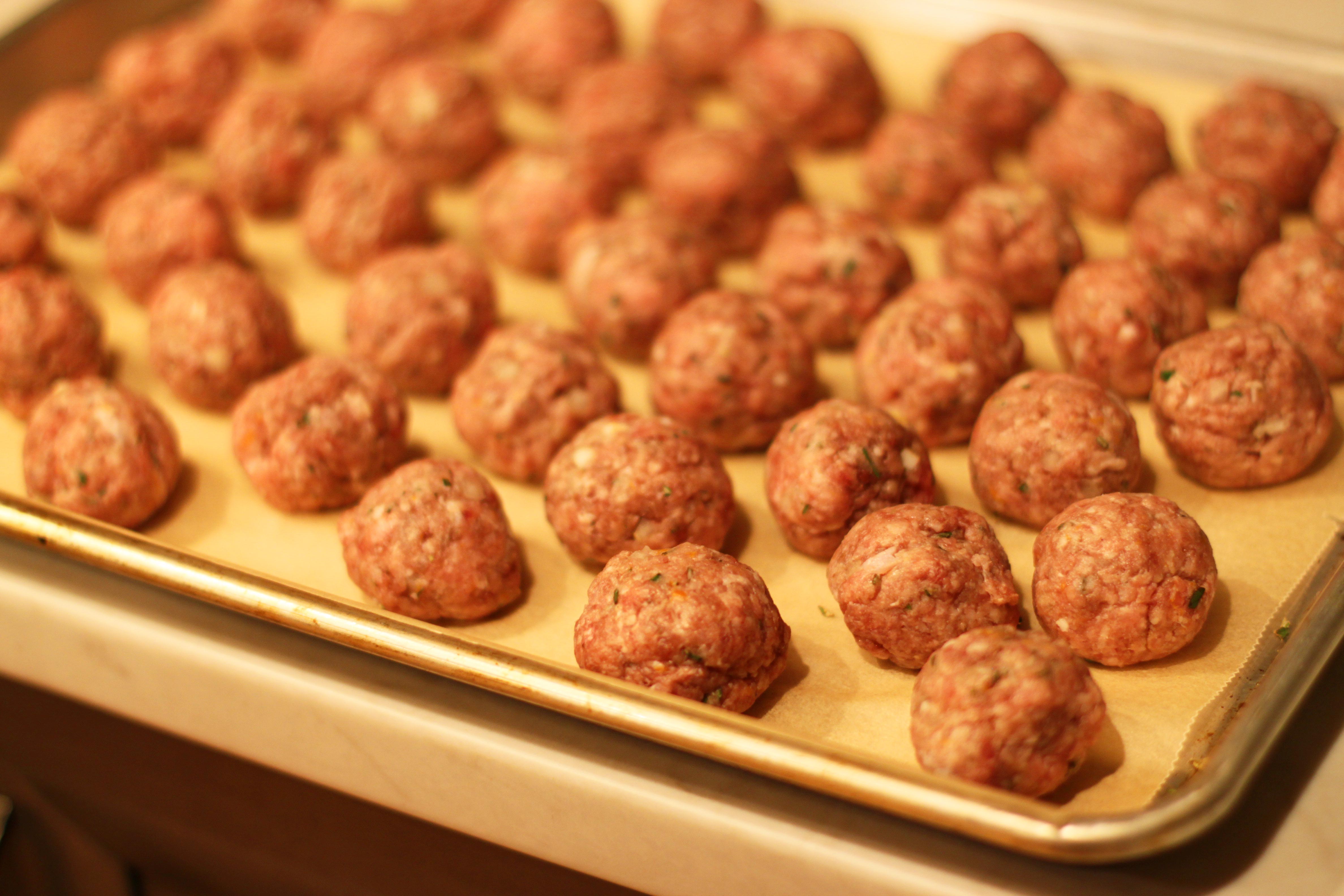
Thyroid-healthy Highlights:
- Grass-fed (or grass “finished”) Beef has a far different and superior nutrient profile than industrially-raised, grain-finished beef, and is high in many key thyroid-supporting nutrients. It contains up to five times more Omega-3s than conventionally raised beef, which can help reduce inflammation in the body, as well as boost immunity. It also can have more than twice the amount of Vitamin E (a powerful antioxidant), and twice as much CLA as grain-finished beef (a fatty acid associated with reducing body fat).
- A 3 ounce serving of pork contains 103% DV for tyrosine, 63% DV for selenium, and 17% DV for Zinc – 3 key nutrients for thyroid health.
- The phytochemicals found in cranberries aid in reducing inflammation sometimes caused by thyroid conditions.
- Raw cranberries are a very good source of dietary fiber, and have an estimated glycemic load of 2 out of 250, making them a good choice for weight loss.
- Cranberries are a natural source of iodine (see note below). The thyroid gland depends on iodine to produce thyroid hormone, but both too much and too little can cause thyroid problems such as goiter, or an increased autoimmune response. Iodine can also be problematic in the case of selenium deficiency. The key is to get enough iodine for thyroid health, but not too much.
- Ginger aids in relieving both the inflammation and the sensitivity to cold sometimes caused by thyroid disease.
*A note on iodine: According to holistic nutritionist Adrienne Klein, thyroid patients should not be on an iodine supplement unless directed and supervised by a qualified physician. She adds that supplementing with iodine is a different beast than dietary iodine since most of the iodine we get from food that is not utilized by the thyroid gets excreted through urine. The recommended daily allowance for iodine in an adult is 150 mcg, with an upper limit of 1100 mcg iodine consumption through food.
Happy cooking, happy thriving, and enjoy the recipe (below)!

P.S. Need more thyroid-friendly recipe inspiration? I’ve got you covered. My Thyroid-friendly Everyday eCookbook features over 50 quick and easy, thyroid-friendly recipes your whole family will love. To take a peek at what’s inside, CLICK HERE.
More Thyroid-Friendly Snacks to Try:
- AIP Artichoke Dip with Garlic Scapes
- Mango Salsa
- Prosciutto-Wrapped Asparagus
- Spiced Chicken Liver Pâté with Green Peppercorns
- Sweet & Spicy Pumpkin Seed Brittle
- Italian Sausage Stuffed Mini Peppers
- Duck Fat and Herb Roasted Pumpkin Seeds
- Dairy-free Arugula Lemon Pesto with Beet Chips
Subscribe to my free newsletter for fresh recipes & lifestyle tips, delivered weekly, and receive a free gift!
By submitting this form, you agree to receive ongoing updates from Hypothyroid Chef





